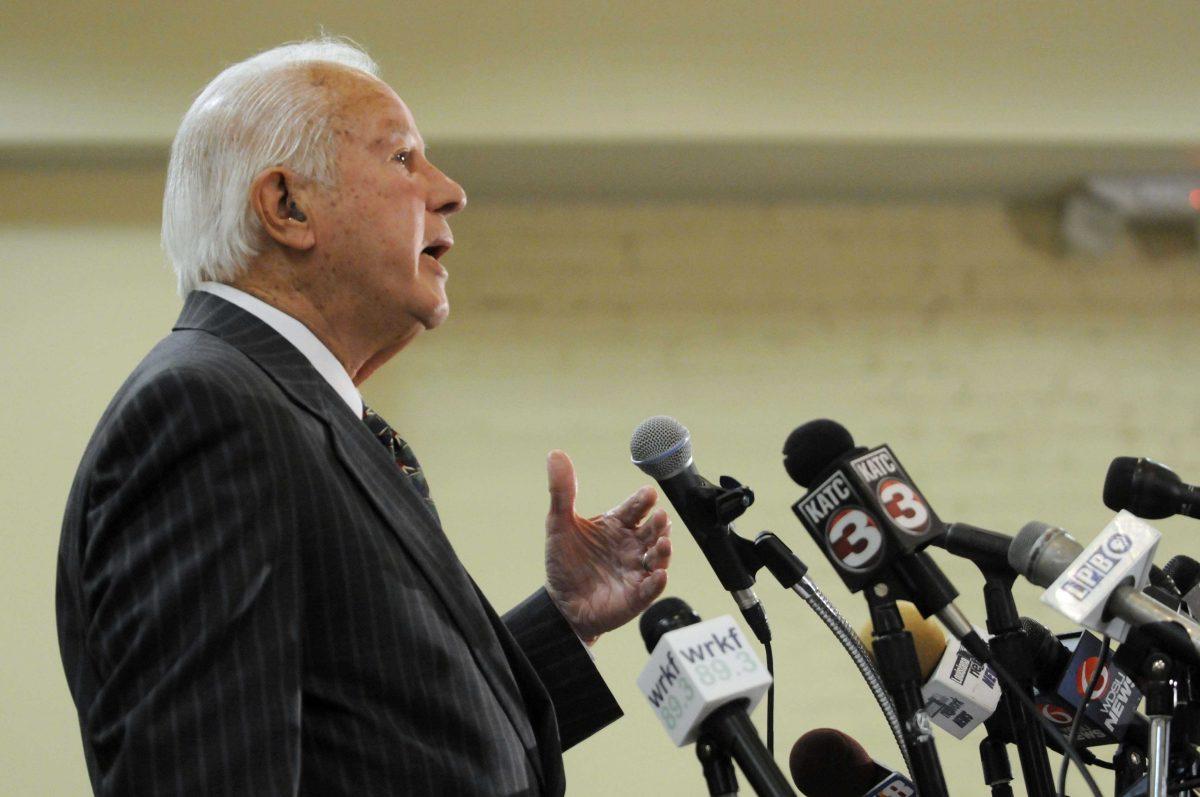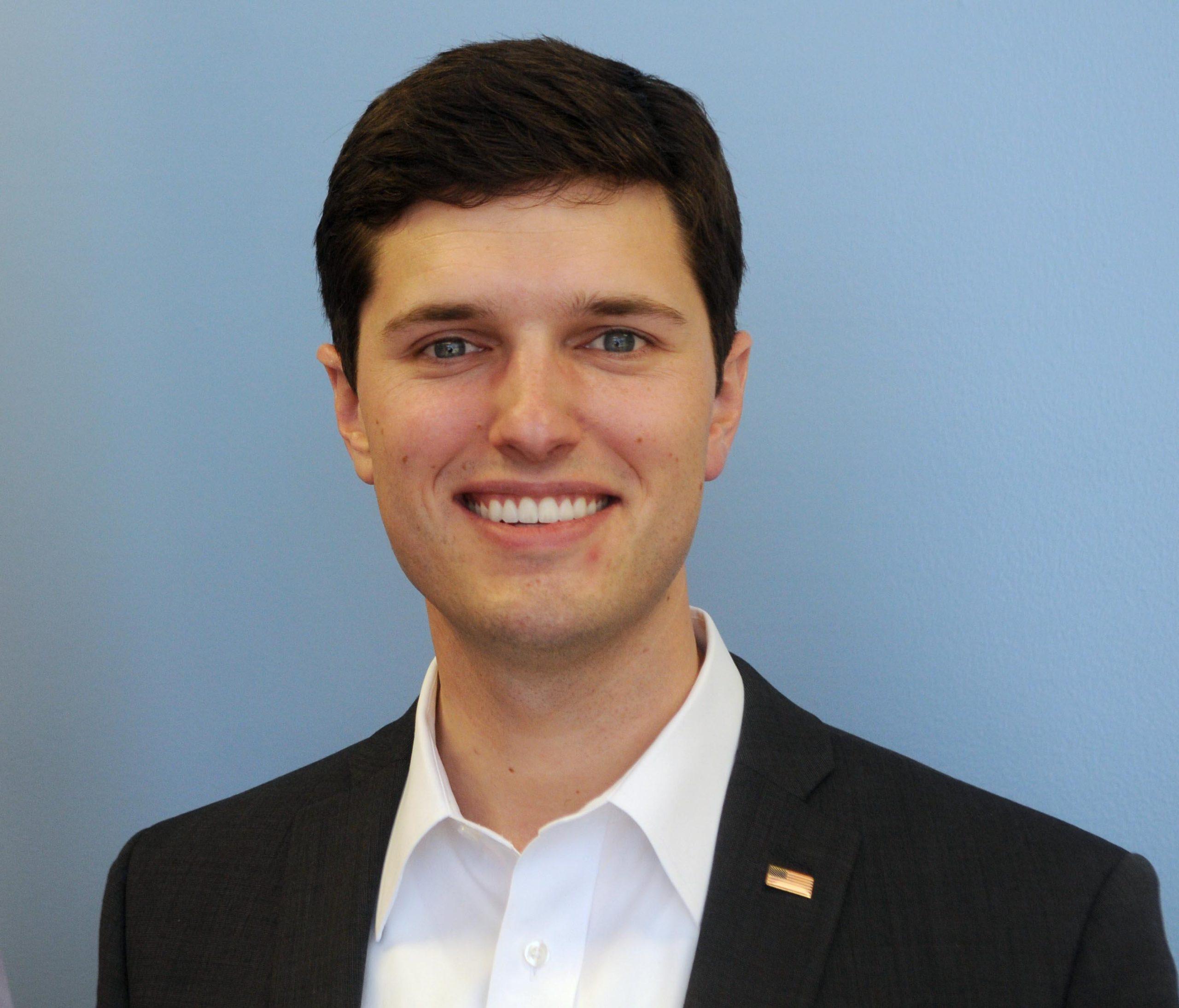Amid a cluttered crowd of largely unknown candidates competing for a national congressional seat, the power of name recognition is undeniable in Louisiana’s 6th district.
However, according to University political science professor James Garand, three names in particular, all steeped in Louisiana history, are emerging as frontrunners in the race — Edwin Edwards, Dan Claitor and Paul Dietzel II.
Edwards, a Democrat, was a previous governor of the state and Louisiana’s longest-serving executive. He is also a felon convicted on charges of racketeering and extortion.
Claitor, a Republican, is a state senator whose family has operated a local law bookstore since 1922.
Dietzel, a Republican, is a software entrepreneur and grandson of famed LSU football coach Paul Dietzel I, the first to lead the Tigers to a national championship.
Garand is the faculty adviser for the Dietzel for Congress campaign, though he said he does not endorse the candidate. Garand said he simply gave the campaign permission to operate on campus, and he would have done the same for any other congressional candidate.
Garand said the three candidates have distinct identities in the race, with Claitor representing the “moderate-conservative side of the election” and Dietzel embodying the “more conservative candidate.” Edwards “is a colorful candidate who generates intense feelings, both positive and negative.”
Regardless of their political personas, Garand said all three candidates have names that are already familiar with many Louisiana voters.
Garand acknowledged Edwards has the most name recognition of the candidates, while Dietzel was more well-known than his fellow Republicans.
“Dietzel has a million-dollar-name, but it’s not his name,” Garand said, referring to the candidate’s grandfather. “He now has the ability to take advantage of the name and then define himself,” Garand said.
At least eight other candidates are also running for the 6th district seat, despite having little name recognition compared to the three frontrunners.
Among the other candidates are University doctoral candidate Norman Clark and local lawyer Cassie Felder.
Garand said the lesser-known candidates could have several motivations for running, with some contenders knowing they have little chance at achieving victory.
“I think that sometimes people have an ideological or policy axe to grind, and they look for a way to express those views,” Garand said. “It’s highly unlikely that any of these candidates are going to be able to jump over these three people with established political reputations.”
When reading a complete list of the declared candidates, studio arts freshman Raegan Labat only recognized Edwards’ name.
Labat, who identifies herself as more liberal than conservative, said she would vote for Dietzel over Edwards if forced to make a choice in a hypothetical runoff.
“He seems pretty scandalous,” Labat said of Edwards. “Didn’t he steal money?”
English sophomore Michael Rosenberry was also only able to vaguely identify Edwards when presented with the candidate list.
Rosenberry described himself as “completely uninformed” politically, and said he would vote for Edwards if forced to make a choice in the hypothetical Edwards and Dietzel runoff. He said his opinion would be subject to change if he knew more about the issues.
“I’d probably just say Edwards just because I don’t know anything about the other candidates,” Rosenberry said.
Rosenberry acknowledged name recognition was very important in state elections especially, which are usually crowded with “obscure” candidates.
“It’s all you have to go on,” Rosenberry said.
Professor talks power of name recognition in congressional race
By Quint Forgey
March 20, 2014
Former Louisiana Governor Edwin Edwards announces he will run for U.S. representative of the Sixth Congressional District on Monday, March 17, 2014 during The Press Club of Baton Rouge luncheon at the Iberville room of The Belle of Baton Rouge Casino & Hotel.
More to Discover









